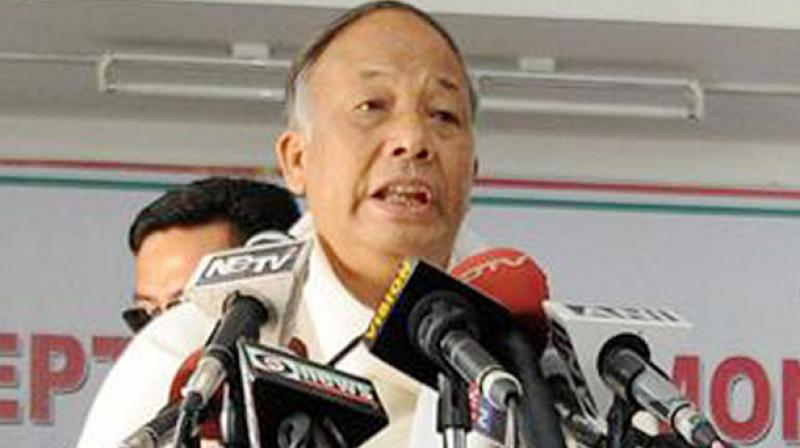Okram Ibobi Singh proves he's the 'constant factor' in strife-torn Manipur

Imphal: With his fourth consecutive victory, Okram Ibobi Singh has proved that he is the "constant factor" in strife-torn Manipur.
The 68-year-old politician, who had earlier made a record of running three successful governments from 2002-2017 in the insurgency-hit border state, led from the front and helped the Congress to emerge as the single largest party.
Though his rule was marred by allegations of fake encounters, corruption and human rights violation, Ibobi, with his decision to create seven new districts, was able to shift the poll plank on the issue of economic blockade and threat to territorial integrity of Manipur if the BJP comes to power.
The United Naga Council, which imposed the indefinite economic blockade in Manipur opposed the Congress in the elections. The UNC, an apex body of all Naga tribal groups in Manipur, reiterated its support for the Naga People's Front
(NPF), an ally of the BJP in the Northeast.
"Politicians and political parties come, politicians and political parties go in the highly unstable political arena of Manipur. But Okram Ibobi Singh is the only constant factor in the state politics for the last 20 years," state Congress general secretary Vidyapati Sejam said.
Born in a farmer family on July 19, 1948 in Thoubal Athokpam in Manipur, Ibobi belongs to the dominant Meitei community. He became a part-time contractor after graduation.
His political career started in 1981 when he became the secretary of a cooperative society in Thoubal. Over the years, Ibobi rose through the ranks, and in 1984 he made his electoral debut in politics and won his first assembly election as an Independent and joined the Congress a year later.
After winning the 1990 polls from Khangbok, Ibobi became the housing and urban development minister. He rose within the Congress ranks and become its state president four years later in 1999.
He spearheaded the Manipur State Congress at a time when militancy and ethnic conflict were at their peak. He became chief minister in 2002, when the Congress with just 20 seats formed a coalition government with the CPI and a
regional party.
Ibobi returned to power in 2007, with 30 seats, one short of the majority mark. The coalition with the CPI continued even after the Left Front withdrew support from the Congress- led UPA.
With allegations of corruption, fake encounters and anti- incumbency putting a toll on Congress prospects and Opposition hoping to win, Ibobi proved his critics wrong as the Congress won 42 seats in the 60-member assembly.
After the BJP's massive win in the 2014 Lok Sabha elections, its eyes were set on Manipur. What followed was defections of some of the big names such as N Biren from the Congress to the BJP.
With the resurgence of the BJP in the state and several Congress leaders switching over to the BJP, it seemed the Congress was going to have a tough time in these assembly polls.
The anti-incumbency of one-and-a-half-decade of rule seemed to be taking toll on the Congress. "People of this state know that the BJP is responsible for
this blockade and have joined hands with UNC, which is a threat to the territorial integrity of Maipur," Ibobi had told PTI during the poll campaign.

